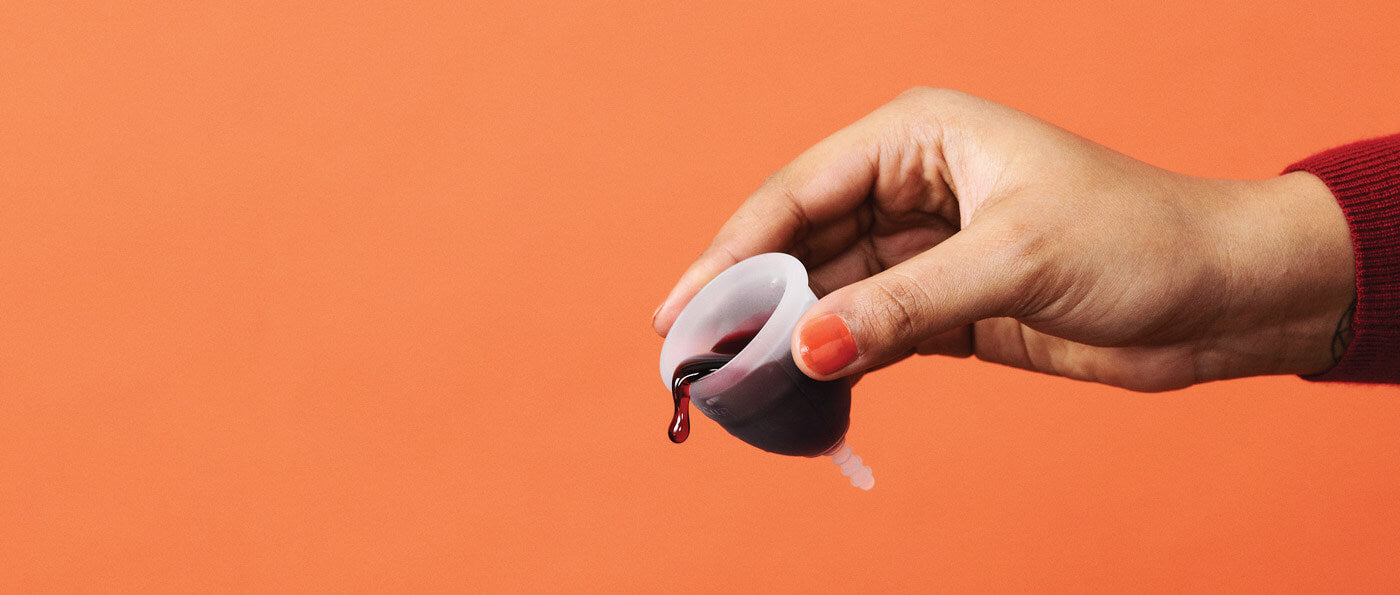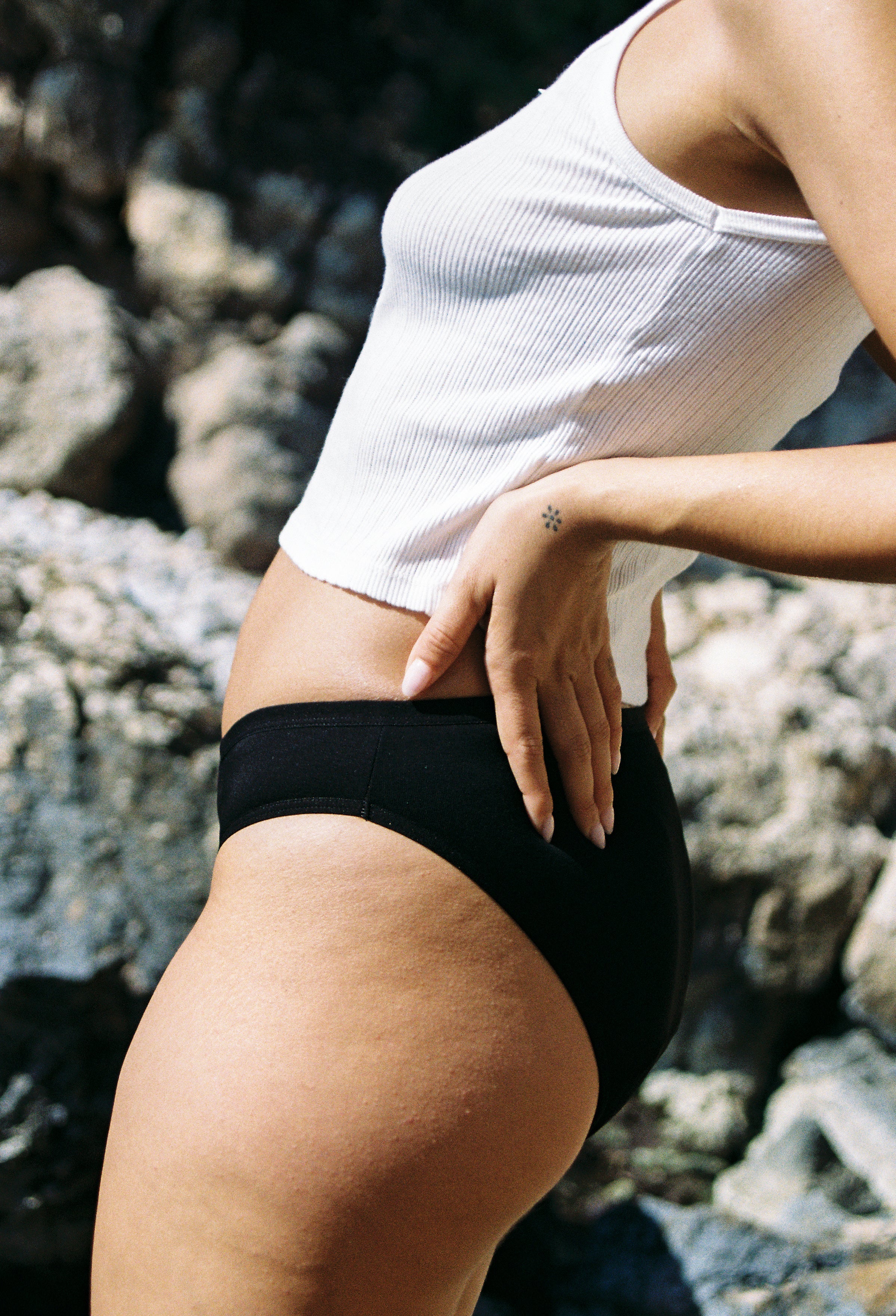There is no shame in learning more about menstrual cycles, or having questions, no matter your age or gender. It’s normal to be curious, and a great thing to learn more about how our bodies work. There are also a lot of choices in period products, and it’s good to be informed about which ones are best for you. We’ve compiled some of the most frequently asked questions about periods – all in one place – to make it easy for you to understand more.
What is a period?
A period is a natural process that happens in the body of those with a uterus. Every month you will ovulate, which causes your endometrium - or uterine lining – to thicken, and an egg to be released from the ovary. If you’re not pregnant, then the egg and the lining of the uterus begin to shed and flow out of the cervix and then through the vagina.
What is the menstruation cycle?
A menstrual cycle usually starts on the first day of your period. It is the cycle your body goes through to prepare for pregnancy every month. The average cycle is 28 days long and is controlled by hormones. It has about 4 phases.
Days 1 - 5
Day one is when your period starts, and this usually lasts 5 days, but can be longer or shorter depending on your body.
Days 6 - 14
After your period ends, your uterine lining begins to thicken and prepare for possible pregnancy.
Days 14 - 25
When your cycle hits the two-week mark, the egg is finally released from the ovary and descends to the uterus.
Days 25 - 28
If pregnancy doesn’t happen, the hormones in your body will start to break the egg and uterine lining down. And then the cycle repeats!
Why is it called a period?
We’ve used the terminology for over two centuries, and it’s called a period in reference to an interval of time. Menstruation also comes from the root word of menses or monthly! There are other terms for periods but they can contribute to the stigma of periods.
When will I get my period?
All bodies are different so the times of when you get your first period will vary. You can be as young as 9, or even up to the age of 16. However, the average ages to start are 12 and 13. If you’re over the age of 16 and still don’t have your period, you might want to see your doctor. There are conditions like Amenorrhea which can prevent periods from starting.
How long does a period last?
Periods typically last anywhere from 3 to 8 days. However, the average is 3 to 5, with the heaviest bleeding being in the first few days.
How often will I get my period?
The average is once a month, give or take a few days. The average menstrual cycle is 28 days but it can be a few days longer or shorter.
What are period cramps?
Period cramps are caused by hormones released in the body to make the uterus contract. When these contractions happen, the blood supply in the uterus is temporarily cut off. Your body then releases chemicals called prostaglandins to let your brain know what is happening. These chemicals make you feel pain. The pain should never be excruciating though. Period cramps are often a dull continuous ache, or throbbing pain in the lower abdomen, lower back, and thighs.
What period product should I use?
That’s completely up to you. There are many pros and cons to each product, and certain products can be easier or more convenient to use than others depending on what you’re doing. For example, period underwear can be great to use towards the end of your period, or on heavy cramping days when you want to be comfortable. Menstrual cups can be great for heavier periods, or long periods of time spent outdoors without having to worry about a change, as they last up to 12 hours. Pads and tampons can be convenient or more comfortable for certain people. It is all down to preference, so experiment with different products to see what you like best.
What is PMS?
PMS, otherwise known as premenstrual syndrome, is symptoms experienced before, during or even after your period. They are usually mood swings, feelings of anxiety or irritability, fatigue, bloating, tender breasts, headaches or migraines, acne or spots, and loss or gain of appetite and sex drive. PMS is completely normal and there are things to mitigate it, like exercising, having a sleep schedule, taking painkillers, and eating a balanced diet.
Can a menstrual cup or tampon become lost inside me?
No, a menstrual cup or tampon cannot become lost inside you. They physically cannot pass your cervix, so no need to worry. If you’re having trouble locating a string or stem, bearing down, changing positions to squatting or lying down, and trying to relax should help you get the product out. If you can’t remove them on your own, you can go to see a medical professional for assistance.
How heavy is a period supposed to be?
Periods are considered heavy if you lose more than 60 ml across the entire length of your period. However, you can lose as little as 5 ml. If your period is more than 80 ml, is lasting more than 8 days, or if you are passing clots larger than 2.5cm you should consult a doctor.
Is spotting between periods normal?
Yes, spotting or bleeding between periods is usually perfectly normal. It can be due to hormonal changes, health conditions, medications, or even injuries. If you’re noticing heavier bleeding between periods, you might want to consult a doctor.
How late can a period be?
There are many reasons your period can be late. Typically, if it’s been more than 5 days past your cycle, your period is considered late. But some people miss their periods by a week, or even weeks. If your period is late, you should take a pregnancy test if you are at risk for pregnancy. If you go without a period for more than 2 months you should see your doctor.
Am I pregnant if I miss my period?
Not always, as a missed period can be caused by many things - such as stress, hormone fluctuations, new medications, injury, and so forth. However, if you’re worried about pregnancy, you can take a test a week after your missed period. Pregnancy scares are natural and bound to happen, but you can always read up on tips about having safer sex to help prevent them in the future.
Can I get pregnant on my period?
If you are having PIV (penis in vagina) sex without contraception, you can get pregnant at any point of your cycle. This means when you’re on your period, before your period and after.
Are reusable period products better for the environment?
Absolutely! There are lots of reasons to switch to a reusable period product, one of them being they are a lot better for the environment than disposable products.






